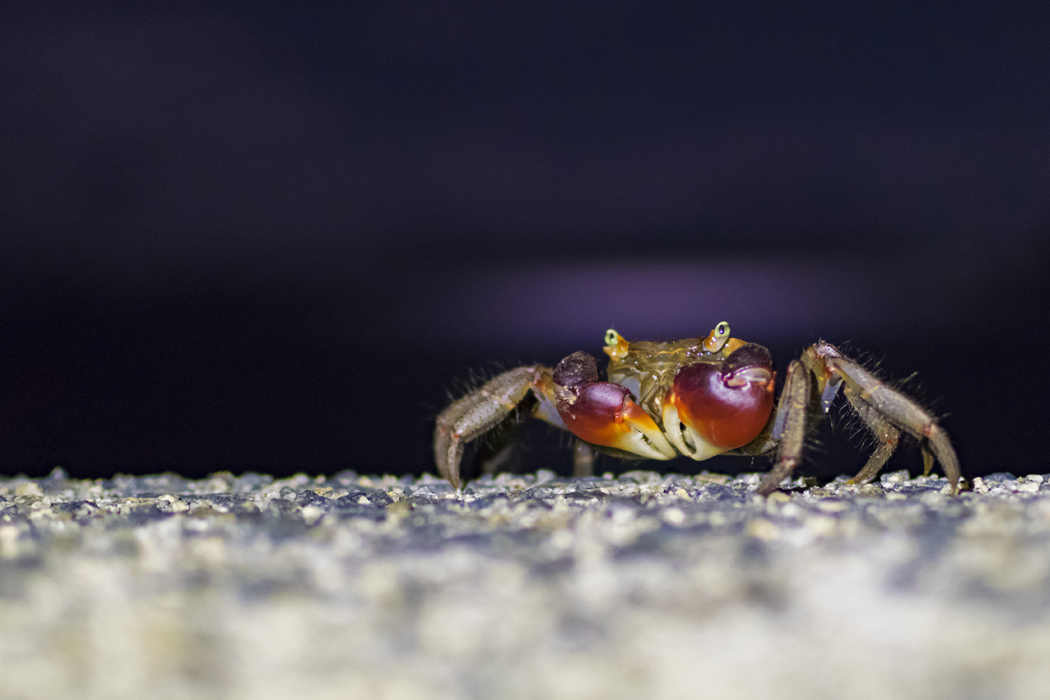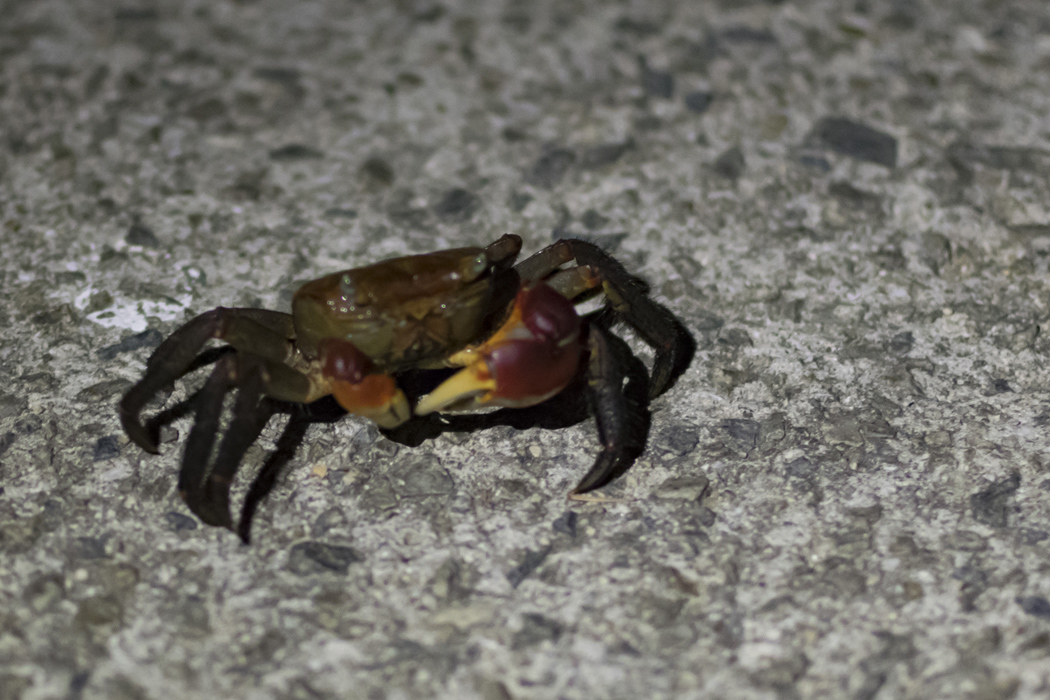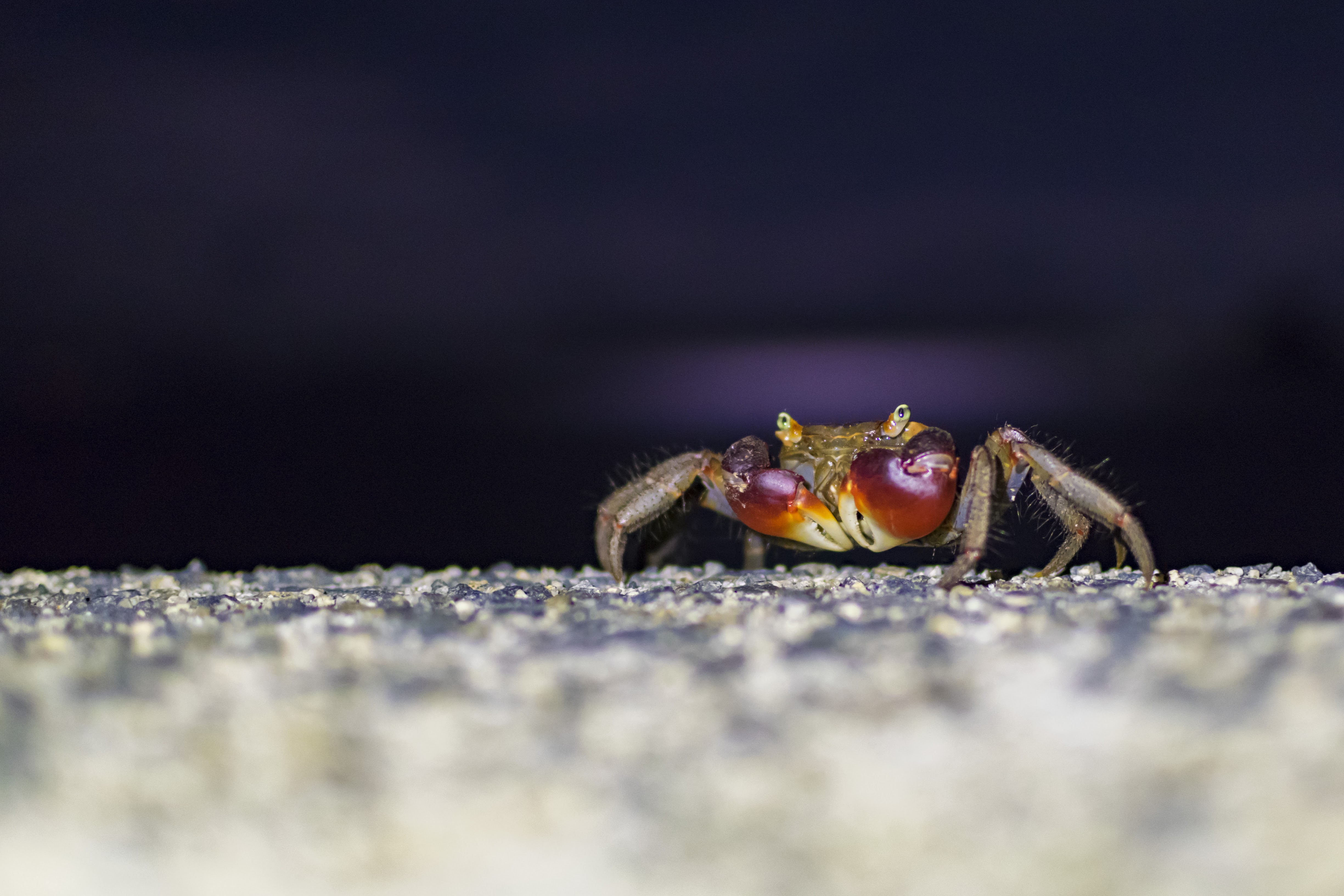
Striped shore crab
Runs around the rocky beach and eats sea lice, small fish and seaweed.
| Scientific name | Pachygrapsus crassipes |
| English name | Striped shore crab |
| Japanese name | 岩蟹 |
| Classification | Crustacea |
| Classification details | Decapoda Grapsidae |
| Full length | 3.5cm |
| Distribution | Widely distributed south of Hokkaido. |
Characteristics
They normally roam rocky shores, and when humans approach them, they flee to the shade of the rocks. You can also catch it with your hands if you are careful not to get caught. On moonlit nights, they can also be found on roads a little farther from the beach. Generally, it is not eaten, but it is delicious when eaten with miso soup.
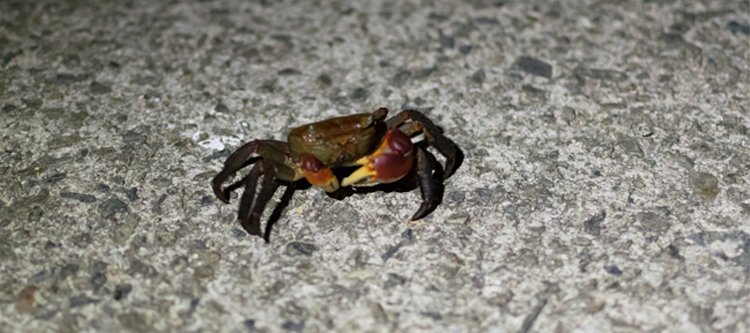
Ecology
It has a crustacean about 3.5 cm long and preys on sea lice, small fish, and dead seafood. When it senses danger, it hides in crevices between rocks and tidal pools. I don't go into the sea very often.
Use as fishing bait
It is sometimes used as bait for catching black sea bream and sea bream. There is a method called 'shirikake', in which a needle is inserted into the belly of a rock crab so that it can roam the ocean floor. You can buy it at a fishing tackle shop, but you can also procure it locally at a rocky place or near a tetrapod.
Habitat
Found near Himegahama, Nakajima, Ehime Prefecture. When I went to see the moonlit sea with a friend, many rock crabs appeared along the coastal road.
The small rock crab ran away as soon as we approached it, but it was alone on the embankment.
Pictures
Introducing a picture of Striped shore crab.

Picture book

White Admiral
A white strip that runs in a V shape.......ead more.

---
A translucent body with a geometric pattern of red streaks.......ead more.
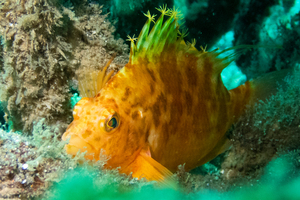
Yellow hawkfish
The tip of the dorsal fin spine is open.......ead more.

Kentish Plover
hides well in sand......ead more.

Whimbrel
Distinctive feature is the downward curved beak.......ead more.
